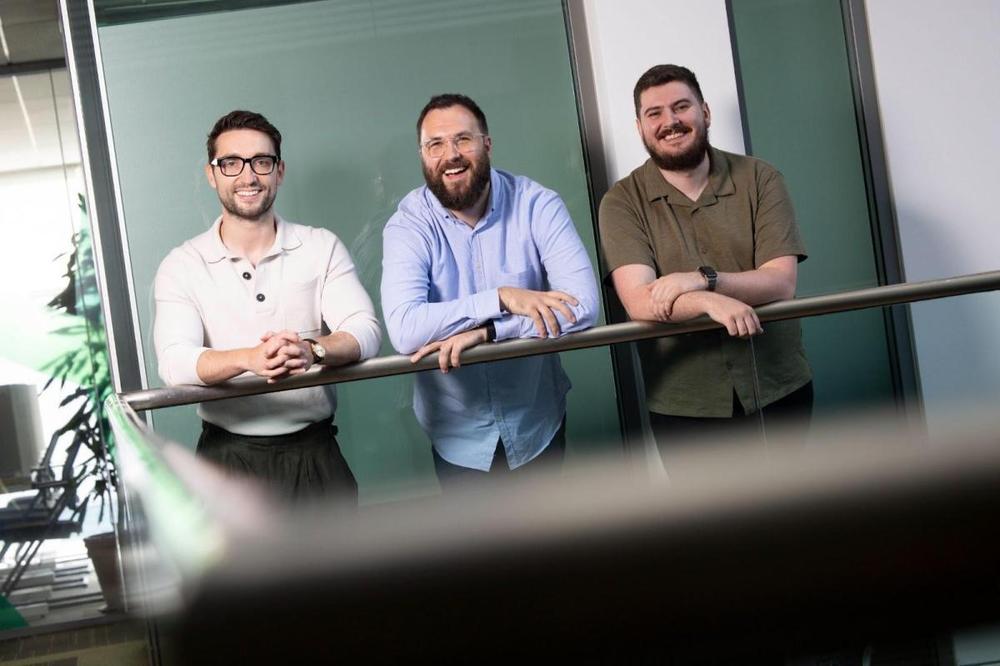Many businesses that provide goods and services to the EU’s 450 million consumers must comply with new accessibility standards that took effect in June. Like the GDPR before it, this new act had companies scrambling to adjust their websites, e-commerce platforms, and banking apps. But despite similar standards existing in the U.S., many still have a long way to go.
“One thing that surprised us was companies, even massive companies, coming to us two weeks before [the deadline] saying, ‘Oh we didn’t know anything about this,’” said Irish entrepreneur Cormac Chisholm.
His startup, DevAlly, is among the first to leverage technology to make it easier for businesses to detect accessibility problems. It also helps them comply with regulations like the European Accessibility Act (EAA), which promises hefty fines for new products and services that aren’t in compliance. (Existing ones get a grace period to comply until 2030.)
Launched in 2024, DevAlly audits for accessibility barriers such as, for instance, videos lacking captions on corporate websites. It also tracks customer-reported issues, helps companies create roadmaps for fixes and generate accessibility reports.
While human consultants can also conduct audits, DevAlly’s CEO Chisholm, believes a such an approach can’t scale to meet demand or adapt to the realities of shipping digital products and features. DevAlly has accessibility experts, too, but it leverages AI and accessibility LLMs to automate testing and issue tracking. This, Chisholm believes, helps integrate accessibility with the product development lifecycle.
This tech-first approach mirrors the path taken by cybersecurity compliance company Vanta, now valued at $2.45 billion.
The regulatory tailwinds and growing awareness around accessibility helped DevAlly secure €2 million in pre-seed funding (approximately $2.3 million), TechCrunch learned exclusively.
With this new capital, the team plans to grow its team from 5 to 15 people by the end of the year — mostly in Dublin, where it participated in the NDRC accelerator program operated by Dogpatch Labs on behalf of state body Enterprise Ireland.
NDRC and Enterprise Ireland participated in the round, but it was led by Belgian fund Miles Ahead Capital, with participation from European angels. According to DevAlly’s founders, that’s in part thanks to tech conference Slush, where they made the top 3 of the startup competition and connected with their future lead investor.
“Traditionally in Ireland, the approach is to go with an Irish VC, but we went with Europe, and one of the things that we’re super excited about is to explore what that unlocks from this investor,” Chisholm said.
DevAlly will use Miles Ahead’s support to launch U.S. operations, starting with sales in San Francisco. The city proved valuable for connecting with heads of accessibility at large B2B software companies after DevAlly participated in TechCrunch Disrupt’s Startup Battlefield 2024. “A lot of our customers right now are on the West Coast,” co-founder and chief revenue officer Patrick Guiney told TechCrunch.
The startup has seen traction in Europe thanks to the EAA coming into force. So have other players, such as Barcelona-based QualiBooth, which recently reviewed the state of European e-commerce accessibility — retail is one focus of the EAA. But both startups also see opportunities in the U.S., where DevAlly is betting on procurement as a major driver of demand.
With estimates that disabled consumers and their households represent $8 trillion a year in disposable income, Chisholm is adamant that “good design is accessible design.” One in five people live with disability, and disability can also be situational — because heavy glare makes it impossible to read your screen in sunlight, or you are holding a baby and can’t access control buttons, he said. “So you want to try and create as much universal design as possible.”
The actions a company may take to address this range from screen reader support to higher contrast and gradients that work for the color-blind. But recent analysis conducted by UX/UI design agency Tenscope found that 94% of the top 1,000 US websites fail basic accessibility standards.
The travel industry was the worst performer, preventing many users from completing basic functions like contact forms, account creation, and online purchases. Even before the EAA, Spanish airline Vueling was fined for failing to make its website accessible.
With the EU-wide EAA now involving multiple jurisdictions, each with its own fines, big tech companies that operate in multiple countries could find themselves in search of help. “That’s why we’re positioning ourselves as a bridge to Europe for these U.S companies,” Chisholm said.
If they do, this will be good news for DevAlly and their investors; but possibly for all of us, Chisholm said. “The improvements that come with accessibility, like subtitles at Netflix, become massive advancements in terms of how we all use technology. It’s a much better form of design.”

 Ukraine to nominate Trump for Nobel Peace Prize if he secures ceasefire with Russia
Ukraine to nominate Trump for Nobel Peace Prize if he secures ceasefire with Russia